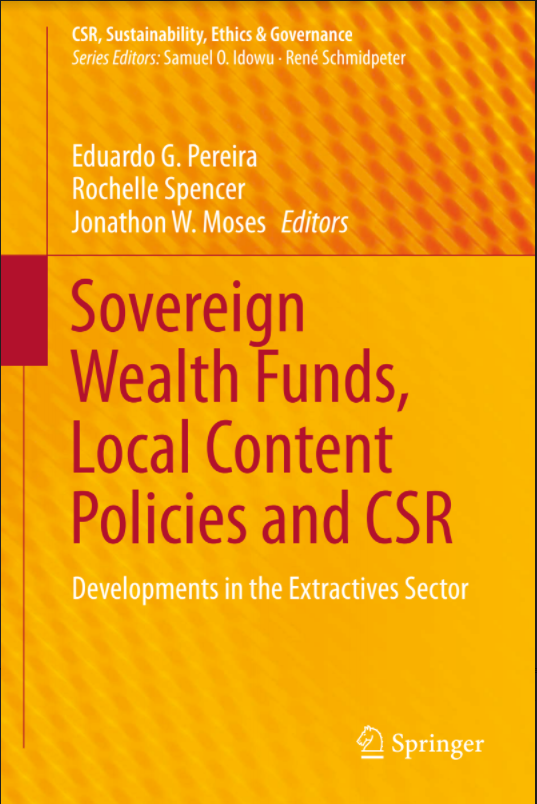My Writing
I wrote Chapter 5 “Canada: The Debate About Oil and Gas Management”
This book discusses how civil society, public debate and freedom of speech affect the management of natural resources. Drawing on the work of Robert Dahl, Jürgen Habermas and Robert Putnam, the book introduces the concept of public brainpower. Good governance of natural resources requires fertile public debate - to conceive new institutions, to provide checks and balances on existing institutions and to ensure their continuous dynamic evolution as the needs of society change.The book explores the strengths and weaknesses of these ideas through case studies of 18 oil and gas-producing countries: Algeria, Angola, Azerbaijan, Canada, Colombia, Egypt, Iraq, Kazakhstan, Libya, the Netherlands, Nigeria, Norway, Qatar, Russia, Saudi Arabia, the UAE, the UK and Venezuela. The concluding chapter presents 10 tenets on how states can maximize their public brainpower, as well as a ranking of how well 33 resource-rich countries have succeeded in doing so.Four of the chapters - -Introduction', 'Norway', 'Kazakhstan' and 'Russia' - are available under a CC BY 4.0 Open Access license at link.springer.com.
I wrote “Non-Renewable Resource Revenue Savings and Distribution in Canada: Alberta” with Niloo Hojjati
This book explores three particular strategies in the extractives sector for creating shared wealth, increased labour opportunities and positive social, environmental and economic outcomes from corporate projects, namely: state wealth funds (SWF), local content policies (LCP) and corporate social responsibility (CSR) practices. Collectively, the chapters explore the associated experiences and challenges in different parts of the world with the view to inform equitable and sustainable development for the communities living adjacent to extractives sites and the wider society and environment. Examples of LCPs, SWFs and CSR practices from 12 jurisdictions with diverse experiences offer usefull insights. The book illuminates challenges and opportunities for sustainable development outcomes of the extractives sector. It reflects the need to take on board the lessons of these global experiences in order to improve outcomes for poverty reduction, inequality reduction and sustainable development.




